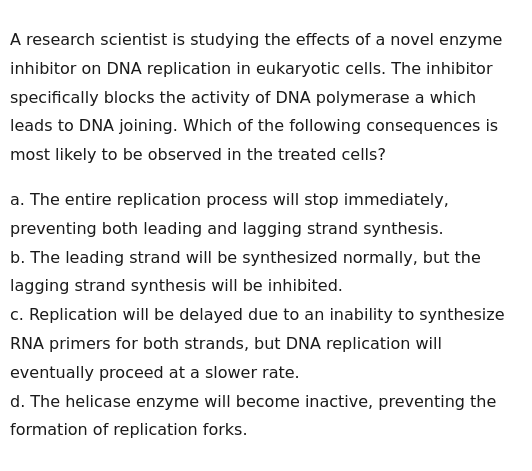Question
Question: A research scientist is studying the effects of a novel enzyme inhibitor on DNA replication in eukar...
A research scientist is studying the effects of a novel enzyme inhibitor on DNA replication in eukaryotic cells. The inhibitor specifically blocks the activity of DNA polymerase a which leads to DNA joining. Which of the following consequences is most likely to be observed in the treated cells?

The entire replication process will stop immediately, preventing both leading and lagging strand synthesis.
The leading strand will be synthesized normally, but the lagging strand synthesis will be inhibited.
Replication will be delayed due to an inability to synthesize RNA primers for both strands, but DNA replication will eventually proceed at a slower rate.
The helicase enzyme will become inactive, preventing the formation of replication forks.
The entire replication process will stop immediately, preventing both leading and lagging strand synthesis.
Solution
DNA polymerase α is responsible for synthesizing RNA primers and a short DNA stretch at the beginning of new DNA synthesis on both the leading and lagging strands. Inhibiting this enzyme prevents primer formation. Since DNA polymerases require a primer to start synthesizing DNA, the absence of primers halts the initiation of DNA replication on both strands, effectively stopping the entire process.
